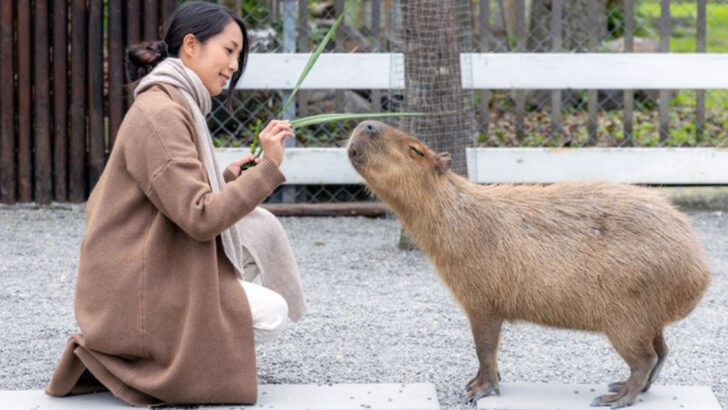They may look like giant guinea pigs—but capybaras are no ordinary pets. These gentle, water-loving creatures are sweet, social, and surprisingly complex. Some owners fall head-over-heels for their mellow charm. Others quickly realize they weren’t ready for a 100-pound rodent splashing in the backyard pool and chewing through garden furniture. Capybaras need space. They need water. And most of all, they need company—usually another capybara. Without the right setup, what seems like an adorable Instagram dream can turn into a stressful experience for both animal and human. Before you dive in and bring one home, there are a few crucial things you should know. Some will surprise you. Others might change your mind entirely. But all of them matter if you want to care for this fascinating creature the way it deserves.
Legal Restrictions
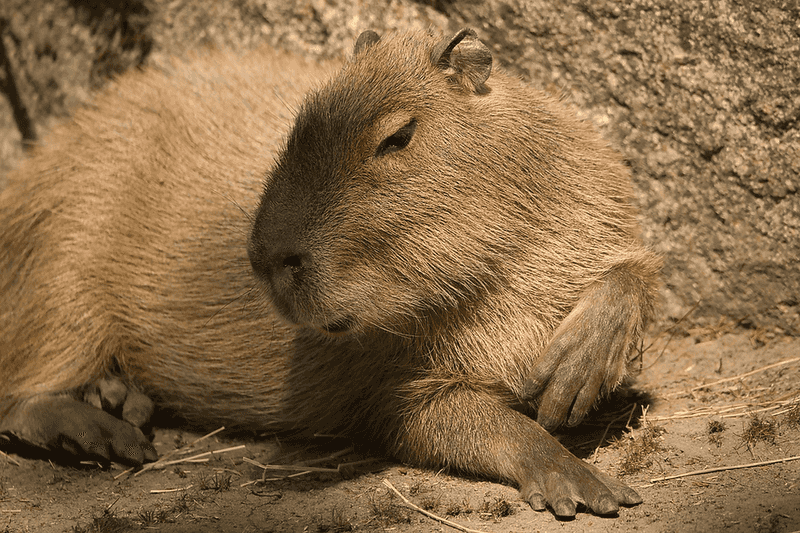
Capybaras are not legal everywhere, and ownership laws vary widely. In many U.S. states, local ordinances may ban them as pets or require special permits. Before considering a capybara, check with local wildlife authorities to ensure compliance.
Owning one without proper authorization may result in fines or confiscation. It’s essential to be informed about regulations, as they can change with new wildlife conservation measures.
For those committed to capybara ownership, understanding legal requirements is the first step in responsible pet care.
Social Creatures
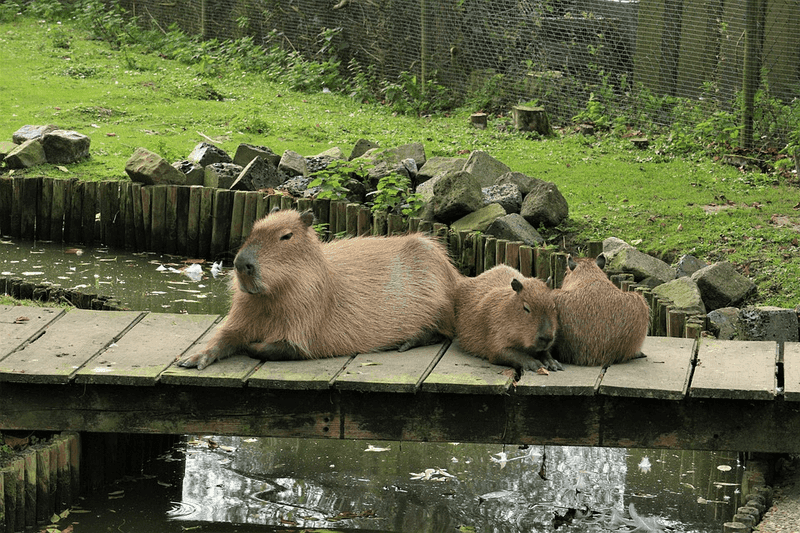
With a heart as big as their bodies, capybaras are highly social animals. They thrive on companionship and can become depressed if kept alone.
Consider adopting at least two to ensure they have a buddy to interact with.
Their social nature is intrinsic, often seen in the wild where they live in groups. Mimicking this environment can lead to happier, healthier pets.
Creating a social space for them at home is vital for their emotional well-being.
Aquatic Habits

Water is not just a luxury; it’s a necessity for capybaras. These semi-aquatic creatures need daily access to a large pool or pond.
Swimming and soaking help them cool off and are essential for their well-being. Without proper water access, they may develop health issues.
Providing a safe water environment mimics their natural habitat, making them feel at home. Investing in a suitable swimming area is crucial for any potential owner.
Size and Growth
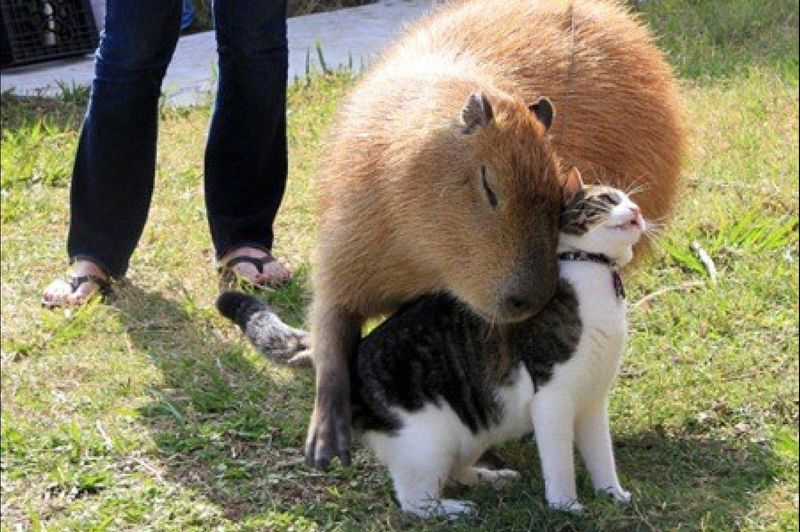
Capybaras can grow big—really big. They hold the title as the world’s largest rodents, with adults weighing up to 150 pounds.
Their substantial size requires ample space to roam and play.
Potential owners should prepare for this growth and consider the implications of having such a large pet.
Living with a capybara means adapting your home to accommodate their needs, ensuring they have enough room to thrive.
Lifespan Commitment
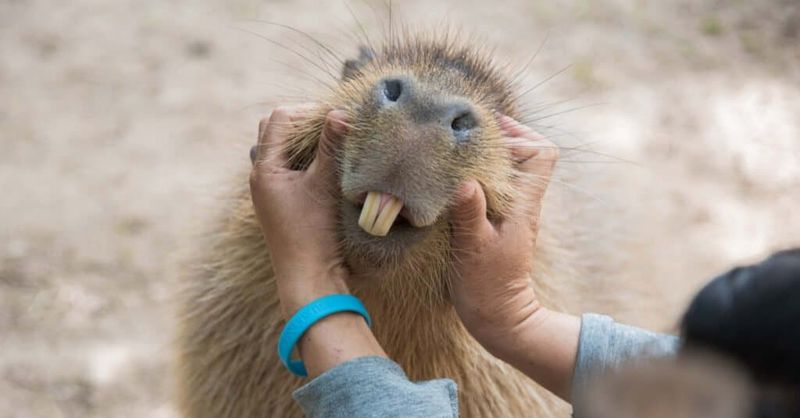
Owning a capybara is a long-term commitment, with a lifespan ranging from 8 to 12 years in captivity.
Providing proper care can extend their life, making them cherished companions for many years.
Prospective owners should be prepared for this enduring relationship, understanding that it requires dedication and resources.
Their longevity means they’ll be part of your life through different seasons, adapting alongside you and your family.
Semi-Wild Nature
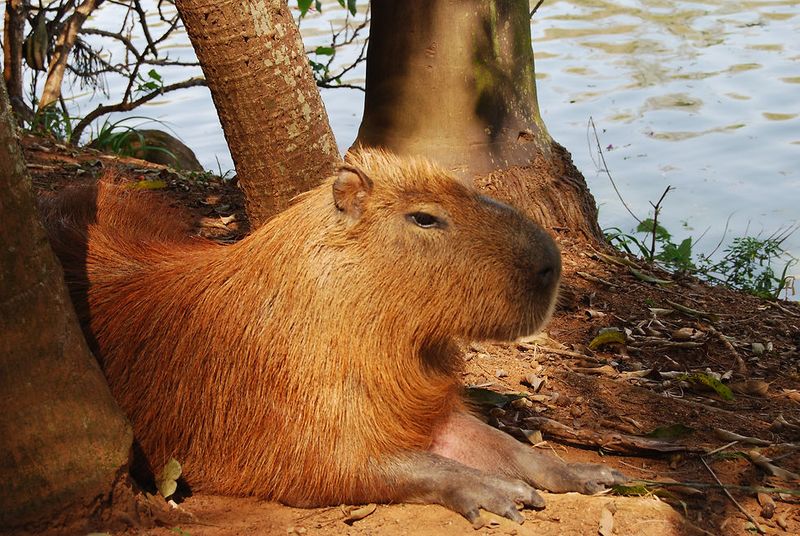
Capybaras retain a semi-wild nature despite being domesticated. They may occasionally nip, bolt, or resist handling, reflecting their natural instincts.
Understanding their behavior is key to a harmonious relationship.
It’s important to approach them with patience and respect, allowing them to express their innate tendencies safely.
Building trust takes time, and respecting their semi-wild disposition will foster a more rewarding bond.
Space Requirements
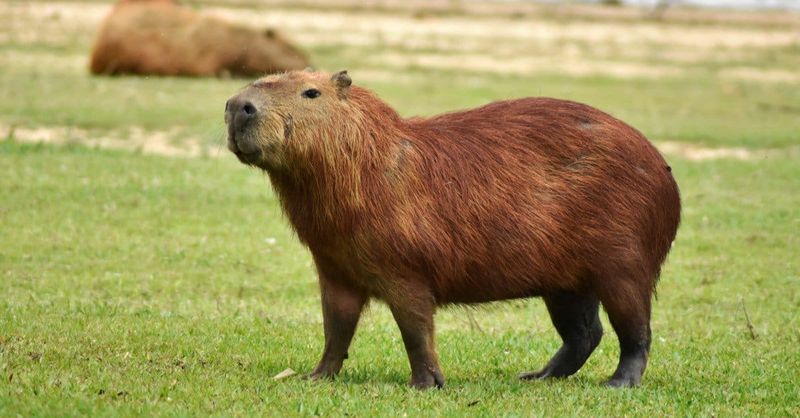
Capybaras demand lots of space. A secure, roomy, and escape-proof backyard is essential for their happiness.
Their natural curiosity means they’ll explore every inch of their territory, so make it enriching and safe.
Providing a diverse environment that includes water, shade, and room to roam will cater to their adventurous spirit.
A well-structured living space is crucial for fulfilling their physical and mental needs.
Chewing Necessities
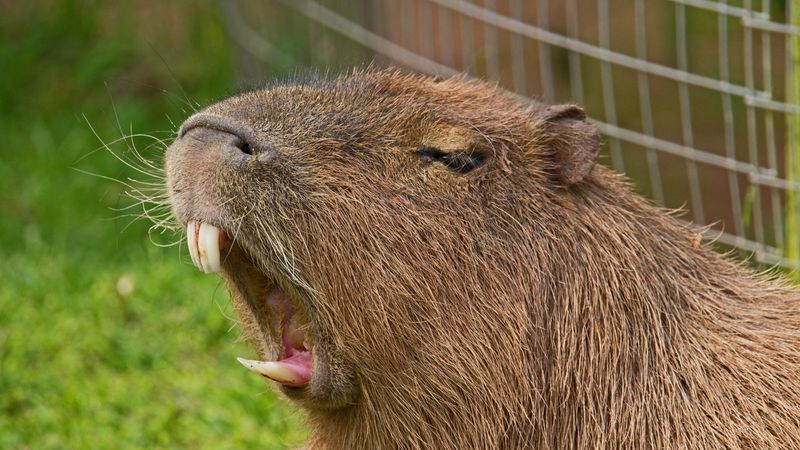
With ever-growing teeth, capybaras need to chew to maintain dental health. This often results in gnawed furniture or fences if they aren’t provided with proper alternatives.
Investing in chew toys and safe materials can save your belongings and meet their needs.
Understanding this natural behavior is part of responsible ownership.
Providing suitable chewing options ensures their teeth remain healthy and your home remains intact.
Vocal Communication
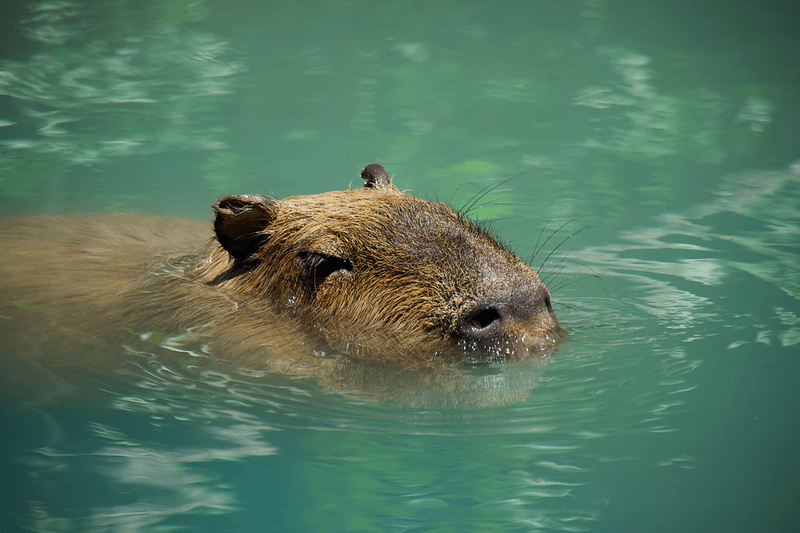
Capybaras are surprisingly vocal, using sounds like barks, whistles, and purrs to communicate.
These noises can occur at any time, sometimes even during the night. It’s their way of expressing emotions and interacting with their environment.
Understanding and appreciating their vocalizations can enhance the bond between pet and owner.
Being prepared for their chatter is part of the joy of having these expressive animals.
Potty Challenges
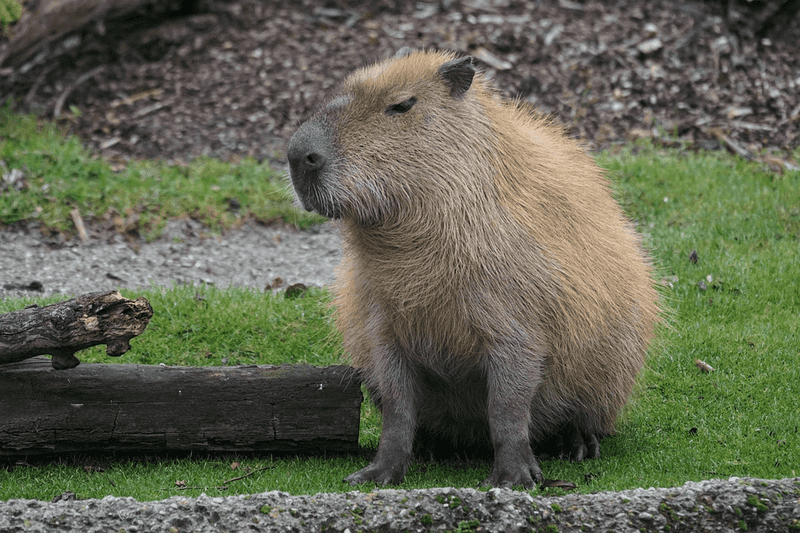
Capybaras are not easily potty trained. They often choose to relieve themselves in water, mimicking their wild behavior.
This can be challenging in a domestic setting, requiring patience and understanding from owners.
Providing a suitable water area where they can follow their instincts helps manage this aspect of their care.
Accepting their natural habits is essential for a harmonious living arrangement.
Sensitive Skin
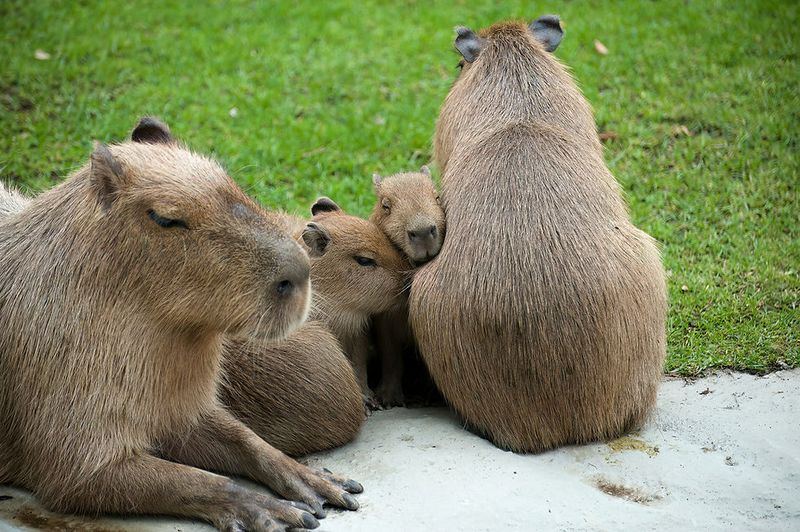
Capybaras have sensitive skin that requires attention to prevent sunburns and dryness.
Ensuring access to mud or shaded areas helps protect them from harsh sunlight.
Owners should be vigilant about skin care, regularly checking for signs of irritation or damage.
Providing a comfortable environment with shelter and moisturizing options is key to maintaining their skin health.
Dietary Needs
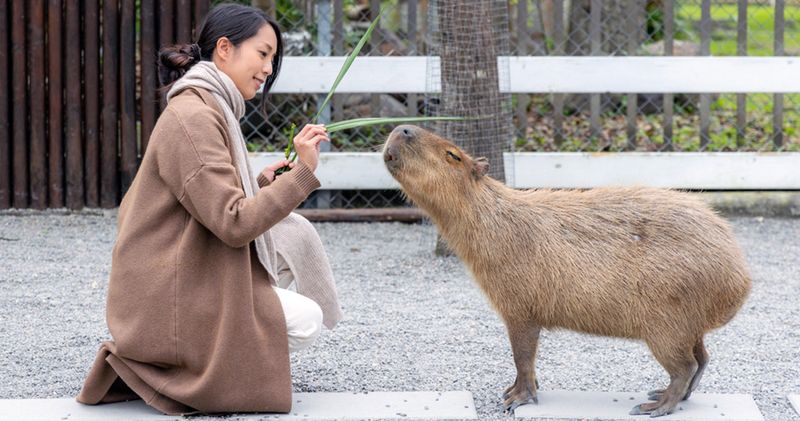
A capybara’s diet is demanding, requiring large quantities of grass, hay, and fresh vegetables daily.
Their nutritional needs are specific, and feeding them properly ensures they remain healthy and active.
Understanding their dietary preferences and sourcing quality food is crucial for their well-being.
Committing to their diet means keeping them vibrant and full of energy.
Veterinary Care
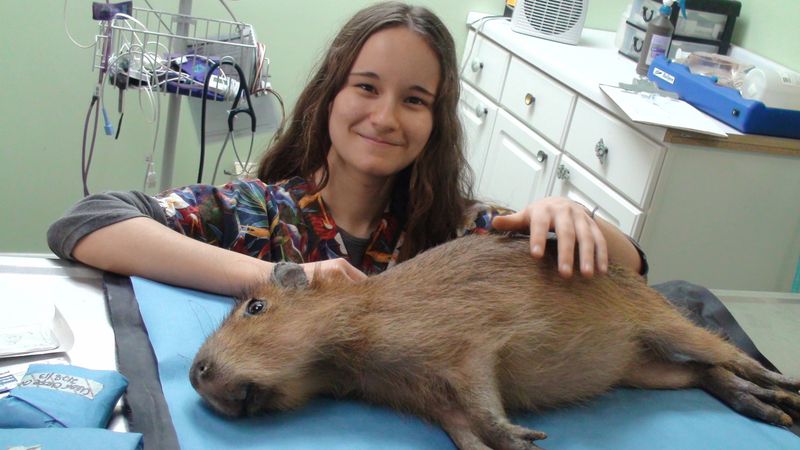
Vet care for capybaras can be complicated due to their exotic nature. Few vets specialize in exotic rodents, making it essential to find a knowledgeable professional ahead of time.
Regular check-ups are important, and finding a vet who understands their unique needs is vital.
Building a relationship with a qualified veterinarian ensures they receive the best possible care throughout their lives.
Indoor Habits
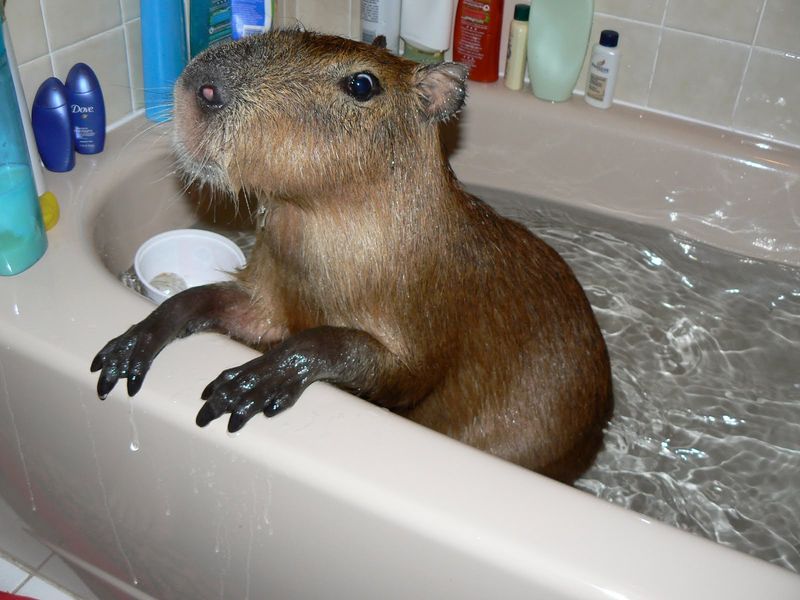
Capybaras don’t enjoy being left alone indoors for long periods.
Isolation can lead to stress, as they thrive on interaction and exploration.
Consider their need for socialization and outdoor activity when planning their indoor time.
Balancing indoor comfort with ample outdoor interaction keeps them content and engaged.
Emotional Bonds
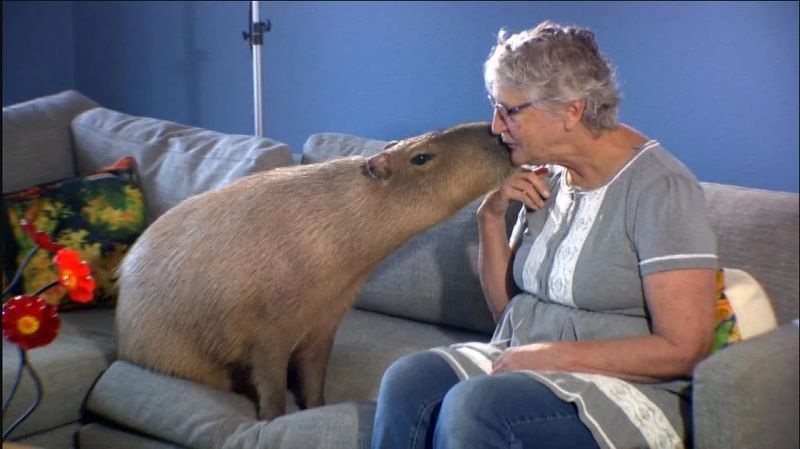
Capybaras are capable of forming deep emotional connections with their owners, although this isn’t always guaranteed.
Some may remain aloof, while others become affectionate companions. Patience and respect for their individuality are key.
Building trust takes time and understanding, leading to a rewarding relationship.
Cherishing their unique personalities enhances the joy of having them as pets.

